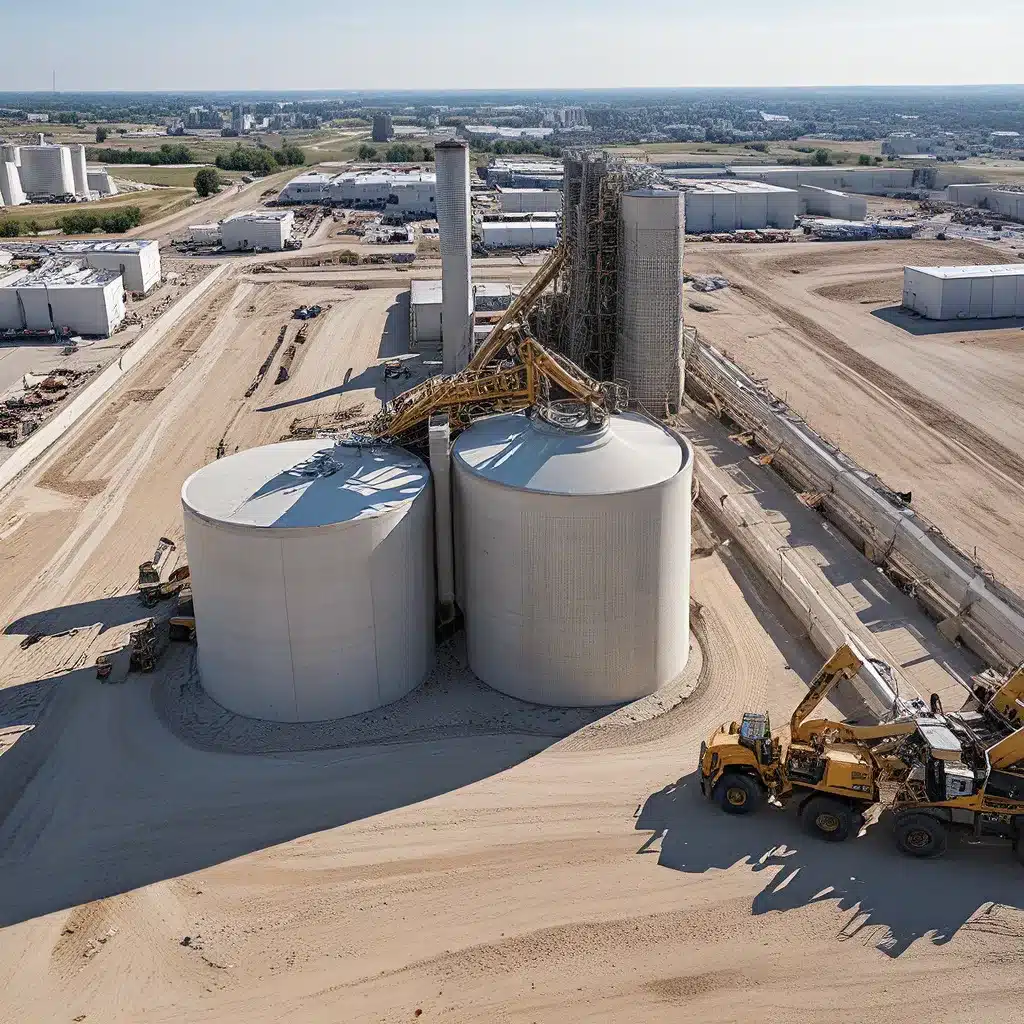
In the bustling heart of Kansas City, where construction projects are the lifeblood of the local economy, the role of concrete batch plants cannot be overstated. These hubs of activity are the backbone of the concrete industry, responsible for producing the vital material that shapes the very foundations of our built environment. As the industry continues to evolve, one aspect remains paramount: the unwavering commitment to safety.
Understanding the Concrete Batch Plant Process
A concrete batch plant is a highly specialized facility that mixes the necessary ingredients – cement, aggregates, water, and admixtures – to create the perfect concrete blend for a specific project. These plants are designed to operate with precision and efficiency, ensuring consistent quality and timely delivery to construction sites across the region.
The process begins with the careful selection and meticulous measurement of the raw materials. Cement, often sourced from nearby mills, is combined with carefully graded aggregates such as sand and gravel, which are carefully screened and stored in designated silos. Water is then added, along with any necessary admixtures – chemical compounds that enhance the concrete’s performance characteristics, such as its strength, workability, or curing time.
Once the ingredients are combined, the concrete is thoroughly mixed to achieve the desired consistency and homogeneity. This mixing process is a critical step, as it ensures the final product meets the stringent quality standards set by industry regulations and client specifications.
Ensuring Safety at Concrete Batch Plants
The safety of the workers, the surrounding community, and the environment is the paramount concern at any well-run concrete batch plant. Operators in Kansas City must adhere to a comprehensive set of safety protocols and best practices to mitigate potential hazards and protect all stakeholders.
One of the primary safety considerations is the management of dust emissions. Concrete production inherently generates significant amounts of particulate matter, which can pose respiratory risks to workers and nearby residents if not properly contained. Batch plants in Kansas City employ advanced dust suppression systems, including specialized filters and enclosed mixing areas, to minimize airborne dust and ensure compliance with environmental regulations.
Another crucial aspect of safety is the handling and storage of hazardous materials. Cement, for example, is a highly alkaline substance that can be corrosive to skin and eyes. Batch plant operators must provide comprehensive training to their employees on the proper personal protective equipment (PPE) and handling procedures for these materials, ensuring they are stored and transported safely.
Implementing Rigorous Safety Measures
To maintain the highest levels of safety at concrete batch plants in Kansas City, operators must go beyond the basic regulatory requirements. Many have adopted a safety-first culture, empowering their employees to identify and address potential hazards proactively.
One such measure is the implementation of comprehensive safety audits and risk assessments. These systematic evaluations examine every aspect of the batch plant’s operations, from the equipment maintenance to the emergency response protocols. By identifying and addressing potential weak points, operators can ensure their facilities are prepared to handle any situation that may arise.
Batch plant managers also prioritize ongoing employee training and education. Workers are regularly instructed on the latest safety protocols, hazard recognition, and emergency procedures. This investment in human capital not only enhances the overall safety of the workplace but also fosters a culture of accountability and vigilance.
Embracing Technological Advancements
The concrete industry in Kansas City is not immune to the technological advancements that are transforming the construction landscape. Batch plants are increasingly incorporating automated systems and smart sensors to enhance safety, efficiency, and quality control.
For example, many plants now utilize computerized control systems that monitor and adjust the mixing process in real-time, ensuring precise ingredient proportions and consistent concrete output. These systems also provide detailed data analytics that allow operators to identify and address potential issues before they escalate.
Additionally, the use of remote monitoring and control technologies enables batch plant managers to oversee operations from a safe distance, reducing the need for hands-on intervention and minimizing the risk of worker exposure to hazardous conditions.
Fostering a Collaborative Approach
Ensuring safety at concrete batch plants in Kansas City is not the sole responsibility of the operators; it requires a collaborative effort among all stakeholders, including regulators, construction firms, and the local community.
Batch plant operators work closely with the Concrete Contractor Kansas City and other industry partners to stay informed of the latest safety best practices and regulatory updates. This ongoing dialogue allows for the continuous improvement of safety protocols and the sharing of valuable insights across the industry.
Furthermore, batch plant operators actively engage with the surrounding community, addressing concerns and maintaining transparency about their operations. This open communication helps to build trust and foster a shared understanding of the importance of concrete safety in the development of Kansas City.
Conclusion: Concrete Batch Plant Safety as a Cornerstone of Progress
In the bustling construction landscape of Kansas City, the concrete batch plant stands as a testament to the industry’s unwavering commitment to safety and excellence. Through the implementation of rigorous protocols, the embracement of technological advancements, and the fostering of a collaborative approach, these vital facilities continue to drive the progress that shapes the built environment of the region.
As the demand for concrete in Kansas City shows no signs of slowing, batch plant operators must remain vigilant, continuously striving to elevate the standards of safety and quality. By doing so, they not only protect the well-being of their workers and the surrounding community but also ensure the long-term durability and reliability of the structures that will stand as the cornerstones of Kansas City’s future.

